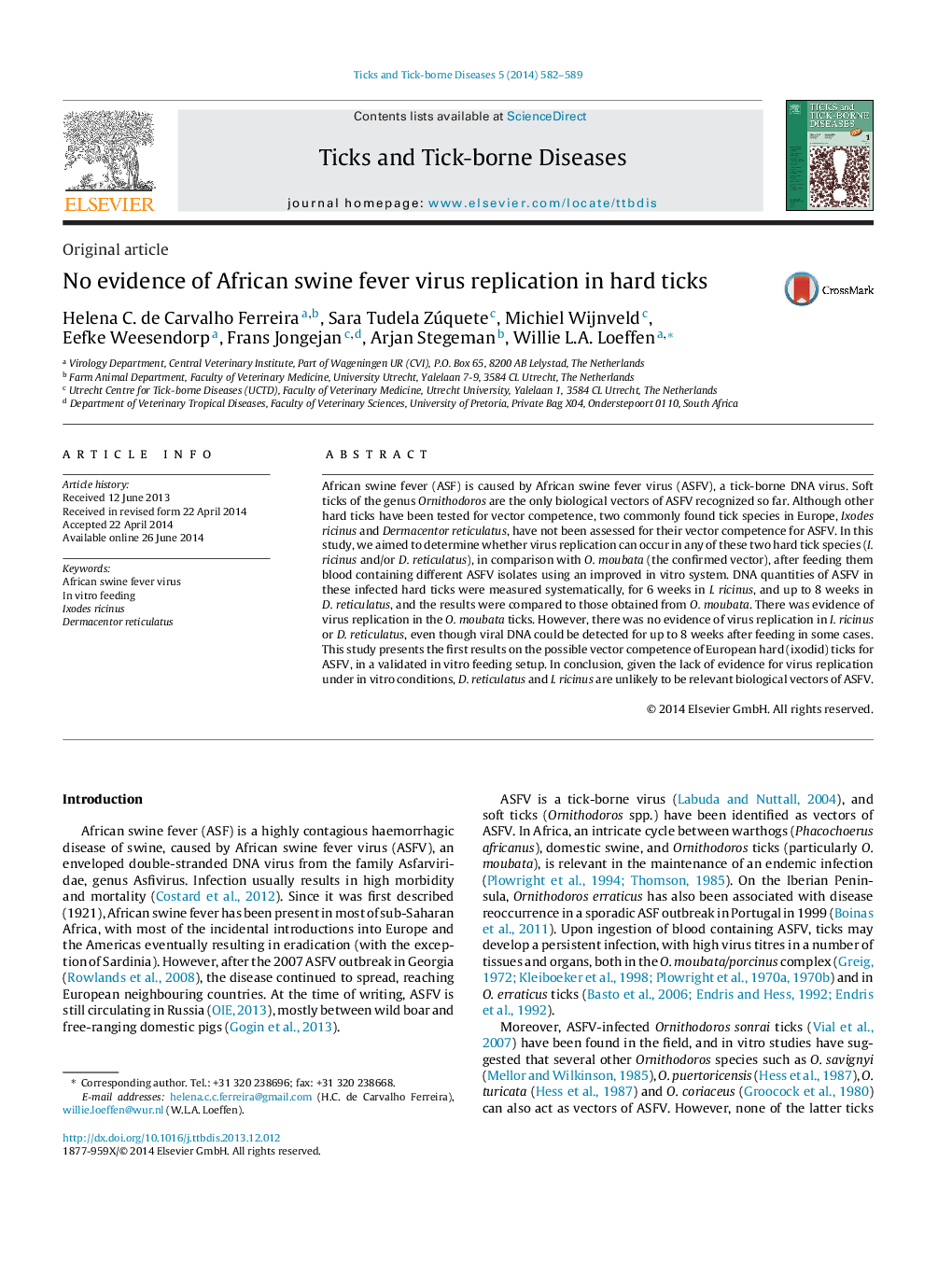| Article ID | Journal | Published Year | Pages | File Type |
|---|---|---|---|---|
| 2474058 | Ticks and Tick-borne Diseases | 2014 | 8 Pages |
African swine fever (ASF) is caused by African swine fever virus (ASFV), a tick-borne DNA virus. Soft ticks of the genus Ornithodoros are the only biological vectors of ASFV recognized so far. Although other hard ticks have been tested for vector competence, two commonly found tick species in Europe, Ixodes ricinus and Dermacentor reticulatus, have not been assessed for their vector competence for ASFV. In this study, we aimed to determine whether virus replication can occur in any of these two hard tick species (I. ricinus and/or D. reticulatus), in comparison with O. moubata (the confirmed vector), after feeding them blood containing different ASFV isolates using an improved in vitro system. DNA quantities of ASFV in these infected hard ticks were measured systematically, for 6 weeks in I. ricinus, and up to 8 weeks in D. reticulatus, and the results were compared to those obtained from O. moubata. There was evidence of virus replication in the O. moubata ticks. However, there was no evidence of virus replication in I. ricinus or D. reticulatus, even though viral DNA could be detected for up to 8 weeks after feeding in some cases. This study presents the first results on the possible vector competence of European hard (ixodid) ticks for ASFV, in a validated in vitro feeding setup. In conclusion, given the lack of evidence for virus replication under in vitro conditions, D. reticulatus and I. ricinus are unlikely to be relevant biological vectors of ASFV.
